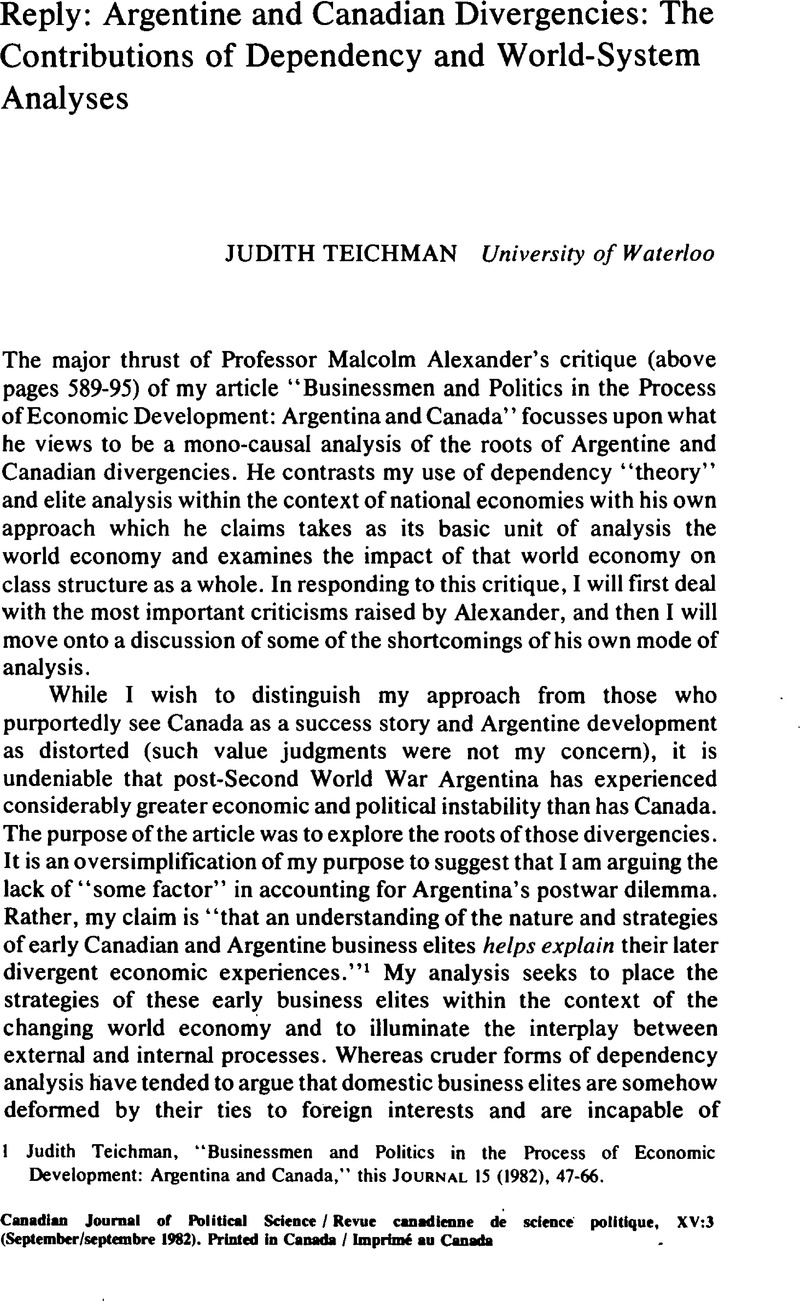No CrossRef data available.
Article contents
Reply: Argentine and Canadian Divergencies: The Contributions of Dependency and World-System Analyses
Published online by Cambridge University Press: 10 November 2009
Abstract

- Type
- Comment/Commentaire
- Information
- Canadian Journal of Political Science/Revue canadienne de science politique , Volume 15 , Issue 3 , September 1982 , pp. 597 - 601
- Copyright
- Copyright © Canadian Political Science Association (l'Association canadienne de science politique) and/et la Société québécoise de science politique 1982
References
1 Teichman, Judith, “Businessmen and Politics in the Process of Economic Development: Argentina and Canada,” this JOURNAL 15 (1982), 47–66.Google Scholar
2 Remmer, Karen L., “Economic Dependency and Political Conflict: Chile and Argentina, 1900–1925,” Studies in Comparative International Development 11 (1976), 3–24.CrossRefGoogle Scholar
3 Remmer admits that “these findings do not prove that public policy actually promoted industrialization” (ibid., 17).
4 See Teichman, “Businessmen and Politics,” 61, n. 42.
5 For a discussion of the entrepreneurial alliances which propelled sharp oscillations in economic policy, see Guillermo O'Donnell, “Estado y Alliances en la Argentina 1956–1976,” Desarrollo Economico 16/64 (1977), and my refinement of O'Donnell's analysis (“The Argentine Industrial Bourgoisie: Economic Strategies and Alliances after the Fall of Peron,” to appear in North South, Canadian Journal of Latin American and Carribean Studies [September 1982]).
6 Malcolm Alexander, “The Political Economy of Semi-Industrial Capitalism: A Comparative Study of Argentina, Australia and Canada, 1950–1970” (unpublished doctoral dissertation, McGill University, 1979), 1.
7 Ibid., 21–22.
8 Alexander experienced difficulties in the comparability of data, a problem endemic to this sort of exercise.
9 Alexander, “The Political Economy of Semi-Industrial Capitalism,” 200,242, 253 and 260.


